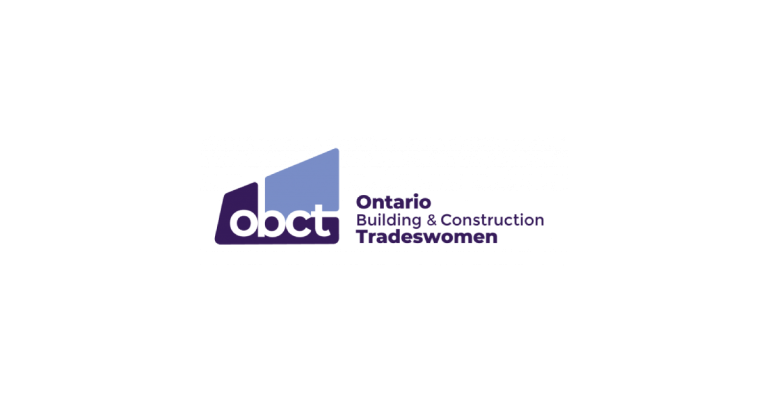The State of Digital Marketing: Takeaways from Digital Summit 2019

Oct 7, 2019
By Katrina Olson
Because digital marketing is always changing, we must stay current to be the effective marketers. I learn by attending webinars conducted by technology vendors, going to conferences, taking American Marketing Association workshops, and listening to podcasts.
In late August, I attended the Digital Summit Chicago, a production of TechMedia LLC. This annual conference, held in 20 cities around the U.S., covers current trends, best practices, strategies, case studies, solutions, and more related to digital marketing. Because there were several sessions running concurrently, I couldn’t attend all of them. But looking over my notes and the full agenda, some themes emerged.
We have access to voluminous data
In 2015, the keynote speaker at a conference I attended said, “If the last decade was about gathering data, the next decade will be about organizing and interpreting that data.” Our ability to gather data has outpaced our ability to make sense of it. We have so much data we don’t know what to look at or for.
Content overload is real
Similarly, we have access to so much content shared through emails, blogs, websites, white papers, and social media, we’re not sure how to manage it. This was underscored by the multiple technology vendors offering solutions to help organize, curate, share, and track digital assets. One provider’s pitch was, “Dropbox isn’t enough anymore.”
And remember, to your customer, you’re part of the clutter. So your content should be relevant, helpful, enlightening, entertaining… something they really want to read, view, or listen to. Good content answers customers’ questions or makes their lives easier or better, or their companies more profitable.
Email is alive and well
Of the 60 sessions offered at Digital Summit Chicago, six included email in the title, and at least six more covered email indirectly while discussing content marketing, digital marketing, marketing challenges, or lead generation. Also, booths were hosted by email or marketing automation vendors.
Everyone loves a good story
Whether it’s your brand story, a customer success story, or a funny story that engages customers and prospects, stories are always more interesting than sales pitches. Incorporate storytelling into your campaigns, website, case studies, social media, annual reports, blogs — anywhere you share content. Storytelling is an art that requires strong interviewing and writing skills, plus a little creativity. So hire a professional if you don’t have a good writer or content developer on staff.
Best practices are BS
Before adopting a best practice, ask yourself, “How did it become a best practice? Do best practices apply equally across all companies? Will implementing it help achieve my business objectives? Is it appropriate for my audience and market?” In short, just because it worked for someone else does not mean it will work for you. Do your research, set your own goals and objectives, come up with your own strategies and tactics, and do what’s best for your business and customers.
 Humanization is more important than personalization
Humanization is more important than personalization
It’s insanely easy to personalize an email with a customer’s or prospect’s name. What’s more difficult and more effective is humanization — creating human connections that lead to relationships and generate loyalty.
This Facebook post by my local police department created a connection humanizing dogs and police, both of whom sometimes get a bad rap from the public.
Brands or companies also can be more human by taking a stand on issues. According to a 2017 Cone Communications CSR Study, 87% of U.S. consumers will purchase a product because a company advocates an issue they care about. And 76% will refuse to purchase a company’s products or services if it supports an issue contrary to their beliefs.
In September 2018, the Nike ad featuring ex-NFL star Colin Kaepernick encouraged viewers to dream big and “Believe in something. Even if it means sacrificing everything.” Former San Francisco 49ers quarterback Kaepernick inspired a player protest of police brutality against African Americans and other minorities by taking a knee during the national anthem before a preseason game against the San Diego Chargers. The ad prompted strong reactions. Some burned their shoes and boycotted Nike, while others were inspired and became even more fiercely loyal to Nike. Nike’s stock price reached an all-time high and sales surged 31% in the days following the ad’s launch. Whether you agree with Nike or not, the strategy seems to have worked. And on September 16, The “Dream Crazy” ad, won the Creative Arts Emmy for Outstanding Commercial.
Yes, building positive brand sentiment is a long-tail KPI, but long-term relationship building is just as important as short-term wins.
Martech and Adtech are taking over marketing
Both marketing technology (martech) and advertising technology (adtech) are part of the new marketing ecosystem. According to a survey by chiefmartec.com, the average enterprise uses 91 marketing cloud services. Unfortunately, many marketers lack skills such as coding, html programming, data analysis, user experience, programmatic, email and marketing automation, CRM management, SEO, and mobile marketing — all of which are becoming necessary to remain competitive. As a result, many digital marketing and technology companies are providing consulting services to fill the knowledge and skills gap.
AI and Chatbots are not the future; they’re the present
Artificial intelligence (AI) is already being used every day (and has been for year) by companies like Amazon and Netflix who make suggestions based on your reading, purchasing or viewing history. Today, AI is being used to answer customer questions, better understand and segment customers, and predict customer behaviour.
By analyzing hundreds of data points about a single user’s location, demographics, devices, website interactions, etc., AI can offer the user unique offers and content. Push notifications can be customer specific, delivering the right message at the right time to move them along their journey.
Welcome to the future
Every day that you put off learning and using digital technology, you’re losing ground. That may sound dramatic. But if you haven’t started, someone else already has the competitive edge. You can catch up. Start learning now, even if you’re not ready. Get familiar with the terminology and offerings. The more you know, the less daunting it will seem.
Katrina Olson is a marketing consultant, trainer/coach, speaker, columnist, and content developer. She also helps companies build high-performing marketing teams. Katrina is the host the Market Boldly podcast available on iTunes, Google Play, and at KatrinaOlson.com. She can be reached at Katrina@KatrinaOlson.com or via her website at www.katrinaolson.com.

















